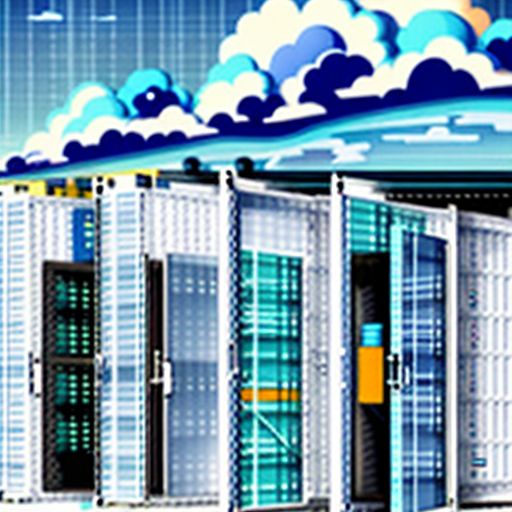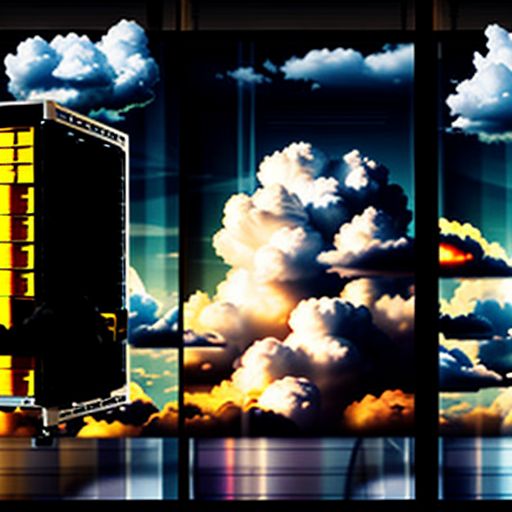
Imagine a world where deploying applications is as easy as shipping a container across the ocean. With Containers In Cloud Computing, this vision becomes a reality. This approach to software development and deployment offers unparalleled efficiency, scalability, and portability, revolutionizing how businesses approach their cloud strategies.
What are Containers In Cloud Computing?
In essence, a container is a lightweight, standalone package containing everything an application needs to run, including its code, libraries, dependencies, and configuration files. It’s like a virtualized operating system, but instead of virtualizing hardware, containers virtualize the OS kernel.
This means multiple containers can run isolated on a single operating system host, sharing the kernel but maintaining their own dedicated resources and environments.
 Containers in the Cloud
Containers in the Cloud
Why are Containers Important in Cloud Computing?
Containers offer a plethora of benefits that make them ideal for cloud environments:
1. Consistency and Portability
Containers ensure consistency across different environments, be it a developer’s laptop, a testing server, or a public cloud platform. This eliminates the dreaded “it works on my machine” problem, streamlining development and deployment cycles.
2. Efficiency and Scalability
Compared to traditional virtual machines, containers are significantly lighter and faster. They consume fewer resources and boot up in seconds, allowing for rapid scaling and improved application performance.
3. Enhanced Security
The isolated nature of containers enhances security by limiting the impact of a potential breach. If one container is compromised, it doesn’t necessarily affect others running on the same host.
4. Simplified Management
Container orchestration tools like Kubernetes automate the deployment, scaling, and management of containerized applications, making it easier for DevOps teams to handle complex deployments.
Common Questions about Containers In Cloud Computing
Here are some frequently asked questions about containers:
1. What is the difference between containers and virtual machines?
While both offer virtualization, containers virtualize at the OS level, sharing the kernel, while virtual machines virtualize the entire hardware, including the OS. This makes containers more lightweight and efficient.
2. What are some popular container technologies?
Docker is arguably the most popular containerization platform, while Kubernetes is a robust orchestration tool for managing large-scale container deployments.
3. How do containers benefit cloud cost optimization?
Containers’ efficiency allows for better resource utilization, meaning you can run more applications on the same infrastructure, ultimately reducing your cloud computing costs.
The Future of Cloud Computing is Containerized
Containers have rapidly become an integral part of the cloud computing landscape. Their ability to streamline development, enhance efficiency, and improve security makes them a compelling choice for businesses of all sizes. As cloud adoption continues to grow, we can expect containers to play an even more critical role in shaping the future of software development and deployment.
What are your thoughts on the impact of containers in cloud computing? Share your views in the comments below!


